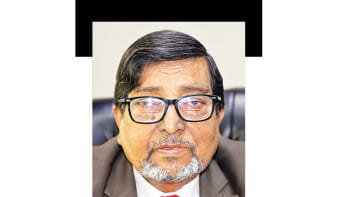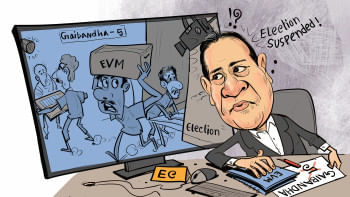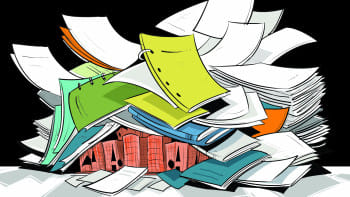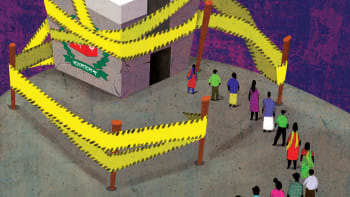The Election Commission is going to buy two lakh Electronic Voting Machines for the next national polls, spending more than 10 times what India paid to obtain its EVMs.
An EVM in India costs about Rs 20,000, said an EC official on the condition of anonymity.
When the EC bought 1.5 lakh EVMs from Bangladesh Machine Tools Factory (BMTF) in 2018, each machine cost Tk 2.3 lakh, the official said.
This time, the outlay is bound to be more due to the appreciation of the dollar, the official pointed out adding that a development project proposal involving Tk 7,500-Tk 8,000 crore was being prepared.
More than four years back, the EC bought the EVMs under a Tk 3,825-crore project.
The base price of an EVM was $2,387 (about Tk 2,26,842 in today's money); another Tk 25,000 had to be paid for its accessories.
Last time, there was no value-added tax on the final price of the EVMs but this time there might be taxes, which would increase the cost further, the official said, adding that the base price would remain the same.
Asked why the Bangladeshi device was more expensive than that of many countries including India, EVM Project Director Syed Raquibul Hasan said, "A Tata car does not cost the same here as in India.
"You can't compare our EVMs with those of any other country. In our EVMs, we have added features like a fingerprint matching system, audit card, polling card, and other safety and security measures. The Indian EVM has no such features.
"If a fingerprint scanner and other accessories were added, what will be the cost of an Indian EVM?" Hasan said.
Asked why the EC has not floated any national or international tender for the EVMs, which might have yielded competitive bidding, Hasan said, "Only BMTF can provide the specific machine."
BMTF is a commercial plant of the Bangladesh Army. The state-owned enterprise has the capacity to deliver two lakh EVMs ahead of the next general election likely to be held in late December next year or early January 2024, according to Hasan.
The move to buy the additional EVMs comes on the back of the EC's August-23 decision to go for electronic voting in up to 150 constituencies in the polls despite major opposition parties' objection to the use of the devices.
The EC has 1.5 lakh EVMs that can be used in 70-80 constituencies at one go in the next polls.
The development project proposal now being prepared includes the setting up of 10 warehouses in 10 regions, recruiting manpower and training them to handle the devices, and buying vehicles for transporting the EVMs.
The warehouses will have foolproof security, firefighting equipment and temperature control for the proper preservation of the EVMs.
The three-storied warehouses would be on 40 kathas of land with more than 60,000 square feet of space to keep around 45,000 EVMs.
"We will need money to buy or acquire land and to have modern facilities to store the machines," Hasan said. Campaigns would be required to make people aware of the EVM use and dispel misconceptions.
The EC is yet to choose the constituencies where EVMs will be used in the next general election.
"This will be finalised when the election schedule is fixed," said an EC official.
EVMs would mostly be used in the urban seats with smooth transportation and also where the devices were earlier used for different elections, the official added.
EVMs were first used in the 2018 parliamentary election.



 For all latest news, follow The Daily Star's Google News channel.
For all latest news, follow The Daily Star's Google News channel. 





